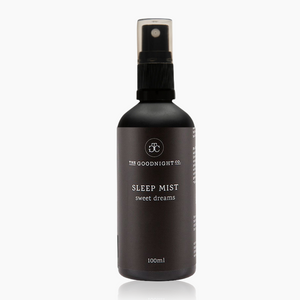
This month we are focusing on Setting Up Sleep Space which is directly aligned to Sleep Hygiene. While we practise healthy habits everyday including washing our hands, brushing our teeth and showering, did you ever think about how stringent your Sleep Hygiene protocols are?
If you are experiencing sleep problems, perhaps it's time to assess your Sleep Hygiene and harness new sleep habits.
What is Sleep Hygiene?
Strong sleep hygiene means having both a sleep space and daily routines that promote consistent, uninterrupted sleep. Everyone should tailor their sleep hygiene practices to suit their needs. In the process, you can harness positive habits to make it easier to sleep soundly.
What are The Common Symptoms of Poor Sleep Hygiene?
- Delayed sleep onset (struggling to fall asleep)
- Frequent sleep disturbances
- Excessive daytime sleepiness
- Decreased libido
Poor Sleep Hygiene can also lead to elevated levels of irritability, forgetfulness and poor concentration.
How can I improve my sleep hygiene?
1. Impliment healthy daily habits
Paradoxically, thinking about sleep should start as soon as you wake up in the morning. Efforts that we make throughout the day, deeply effect our sleep at night. With this in mind, thinking about getting around 20 minutes of sunlight everyday, following a suitable exercise routine as well as reducing alcohol and caffene consumption (especially caffeine after midday)
2. Follow a night time ritual
In the evening, try and follow the same rituals to wind down each night to prepare your body for rest. Be consistent with your sleep and wake times and practise a wind-down routine around 30-90 minutes before bed each night. Avoid scary movies or in-depth conversations before bed to give you mind and emotions time to wind down too.
3. Disconnect from technology
Screens in the bedroom, this is a big no-no! Late-night screen use throws your body’s natural sleep-wake cycle out of whack. Electronic devices emit blue light, which suppresses the production of your sleep hormone, melatonin.
4. Adjust your sleep environment
In addition to behavioural changes, there are changes to your bedroom environment that are also beneficial to your Sleep Hygiene. This can include adding block out blinds or failing that, en eye-mask. Correct room temperature is also vital, The optimal temperature for sleeping is 16-18 degrees so ensure your bedding and bedroom attire is suitable. A spritz of The Goodnight Co. Sleep Mist can also help before bed to create a calming and inviting environment for sleep.
We hope this has helped you outline some of the reasons why you might be feeling tired, along with helpful suggestions on how to improve sleep hygiene.









